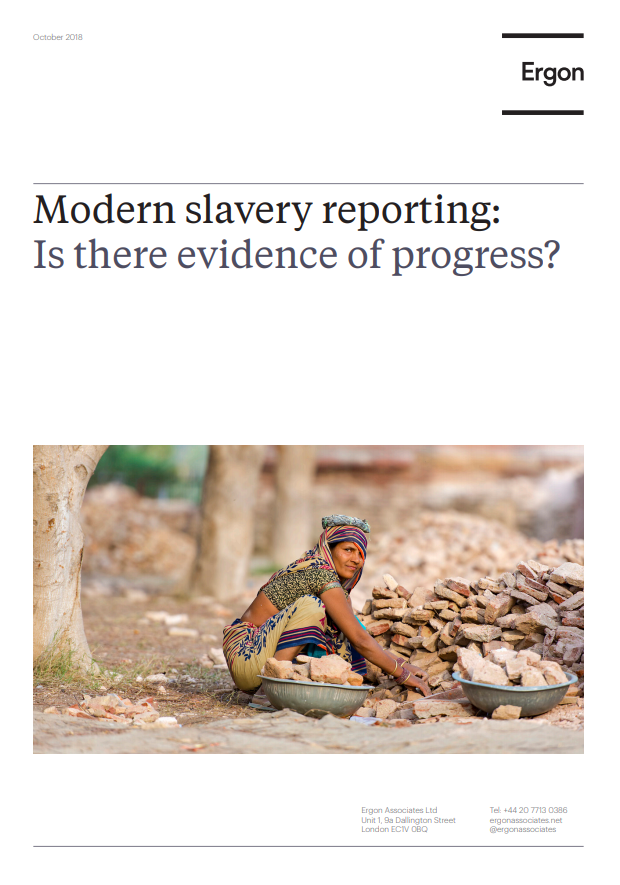This analysis of modern slavery statements focuses on changes in reporting and practice in addressing forced labour and human trafficking.
Some key findings
- Under the UK Modern Slavery Act 2015, companies with a financial turnover of over £36m must make an annual statement on their efforts to combat modern slavery. However, from a cohort of 150 companies last analysed in April 2017, only 81 companies or 54% have produced a subsequent statement. As there is no official monitoring or enforcement mechanism, companies that do not produce new statements face little by way of sanctions.
- Among the 81 companies that produced an updated statement, 58% incorporated substantial changes, but a significant minority (42%) made no changes or only minimal changes. This suggests that many companies are not applying a continuous improvement approach to developing reporting of their activities to counter modern slavery.

